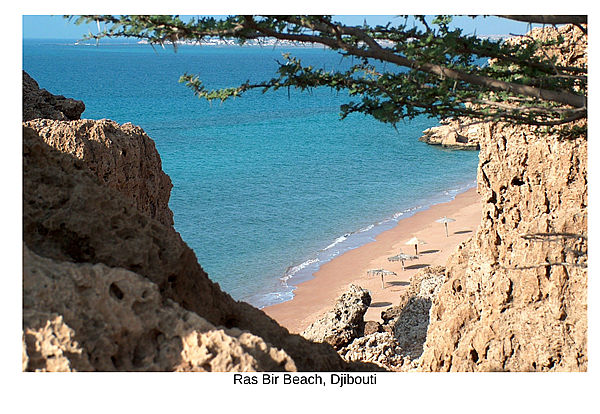 Djibouti: The Unsung Pearl of the Horn of Africa
Djibouti: The Unsung Pearl of the Horn of Africa
Juxtaposed against the backdrop of the Red Sea and
the Gulf of Aden, Djibouti, a small yet vibrant nation, is a tale of stark contrasts. It is an enticing confluence of Afro-Arab cultures where French colonial legacies blend seamlessly with nomadic traditions.
Djibouti, the nation's capital, serves as an inviting gateway into this largely unexplored country, with its bustling markets, beautiful mosques, and French-influenced boulevards.
Yet, Djibouti's true allure lies beyond its urban landscapes. Venture beyond the city limits, and the terrain morphs into an otherworldly panorama of geological wonders. From the shimmering salt flats of Lake Assal, the second-lowest land depression on Earth, to the steaming geothermal fields of Lac Abbé, Djibouti presents a canvas of ethereal beauty. Its desolate moonscapes and sun-baked plains are softened by pockets of emerald-green mangroves, giving way to pristine white beaches lapped by turquoise waters teeming with marine life.
The seas off Djibouti are home to one of the world's most significant gatherings of whale sharks, making it a dream destination for snorkelers and divers. In the hinterlands, the Day Forest National Park hosts a unique ecosystem adapted to survive Djibouti's harsh climate, making it an unmissable spot for eco-tourists and bird-watchers.
For a short video introduction of Djibouti, click below
Visa Requirements
Most visitors will need a visa to enter Djibouti, which can be obtained online or on arrival. Do check the specific requirements for your home country.
Currency
The Djiboutian franc (DJF) is the official currency.
Language
French and Arabic are the official languages of Djibouti. English is not widely spoken.
Internet and Communication
Internet services are available but can be slow outside the capital. For more reliable access, consider buying a local SIM card.
Cultural Norms
Djiboutian culture is a blend of Somali, Afar, and French influences. Respect local customs, particularly when it comes to dress and behavior.
Culinary Experiences
Try traditional dishes like Skoudehkaris, a kind of Djiboutian pilaf, and the locally sourced, fresh seafood.
Getting Around
Public transportation options are limited, so hiring a car or taking taxis are often the best ways to explore.
Health and Safety
Health facilities in Djibouti are limited and advanced treatments may require evacuation. Ensure you have appropriate insurance. The sun in Djibouti can be relentless, so pack plenty of sunblock and hydrate regularly.
Last but not least:
Here's a handy trick for nature enthusiasts: When visiting Lake Assal, don't forget to take ample water and sun protection. The region can be scorching and remote, but it's also incredibly photogenic. A guided tour is often the best way to explore this and other natural wonders of Djibouti safely and comfortably.
